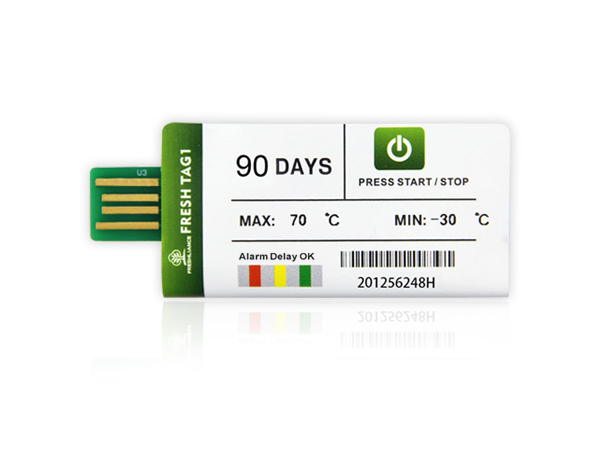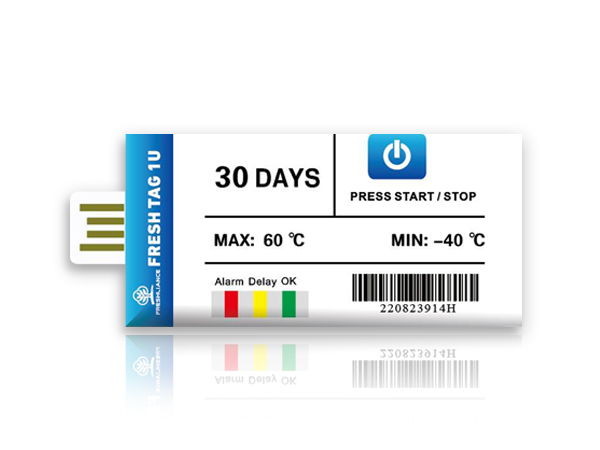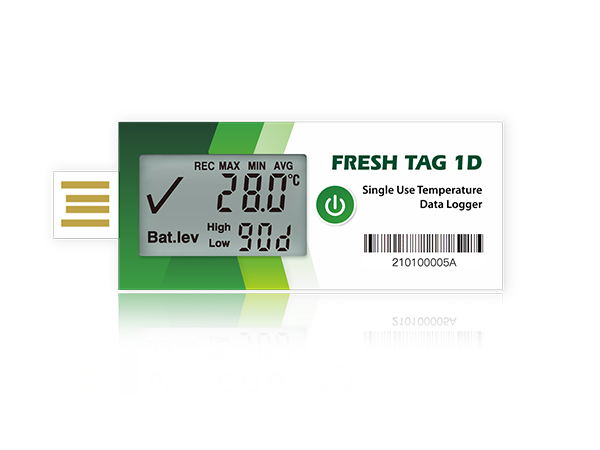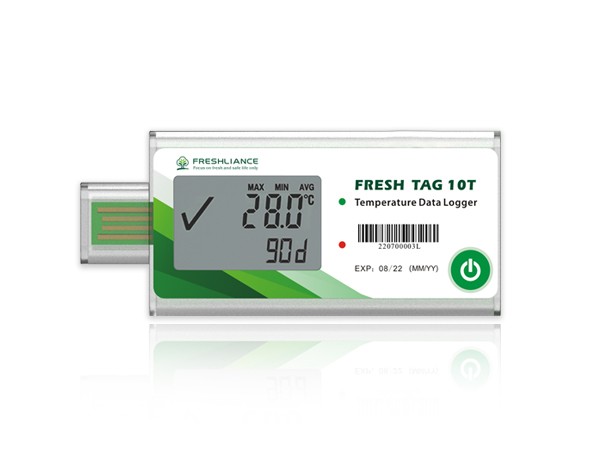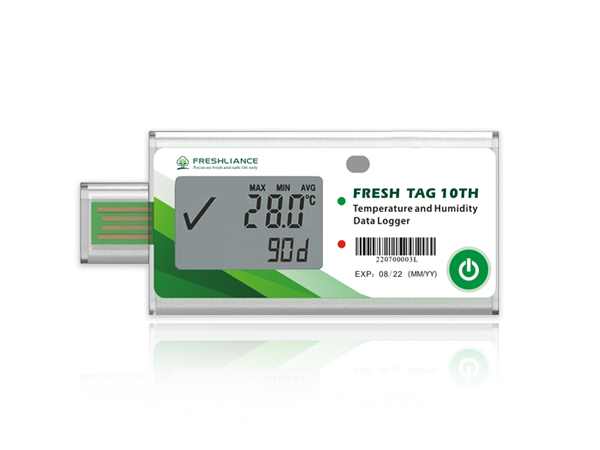Meat and poultry products are sensitive to temperature fluctuations, and Freshliance FreshTag10T single use temperature data logger can monitor the environment throughout the cold chain is essential to ensure that specified levels are maintained and recorded.
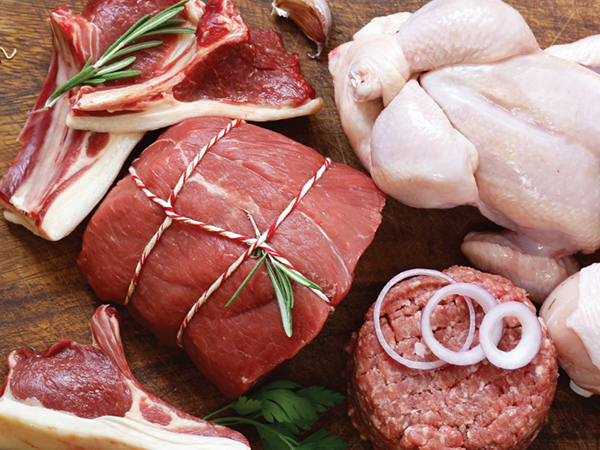
In 2022, the global meat trade is expected to reach 41.6 million tonnes. The global meat supply chain is complex, with frequently long distribution chains associated with the transportation of the product within one country, from one to another country and from one to another continent. Meat is a perishable product with a short shelf life, raw meat is likely to support the growth of pathogenic microorganisms or spoilage bacteria, so it should be kept at temperatures that do not result in a risk to health. Therefore, cold chain logistics is essential and should not be interrupted along the meat distribution chain at all times.

Frozen meat requires particular storage temperature condition. Regularly, most frozen meat should have a core temperature of -18°C so that the activity of microorganisms comes to a standstill and enzymatic degradation processes are largely suppressed. The following are concrete reference storage temperature of various frozen meat:
Designation | Temperature range |
Poultry, gutted | -30~-18°C |
Mutton | -23~-18°C |
Pork | -21~-18°C |
Beef | -18°C |
Veal | -23~-18°C |
Lamb | -23~-18°C |
Temperature measurements must be performed and recorded at regular intervals. The travel temperature must be maintained constantly as variations in temperature may result in recrystallization, resulting in growth of the ice crystals. Variations in temperature are associated with continual slight thawing and refreezing. It is essential to maintain the deep-freeze chain. Thawing damage occurs in the event of extended interruption of freezing, followed by warming and refreezing of the product. A dark red to black coloration due to transient thawing processes is irreversible, the color change being retained on subsequent refreezing.Temperatures lower than specified are not generally harmful, but they should be maintained throughout all the transport operations as there is otherwise a risk of recrystallization.
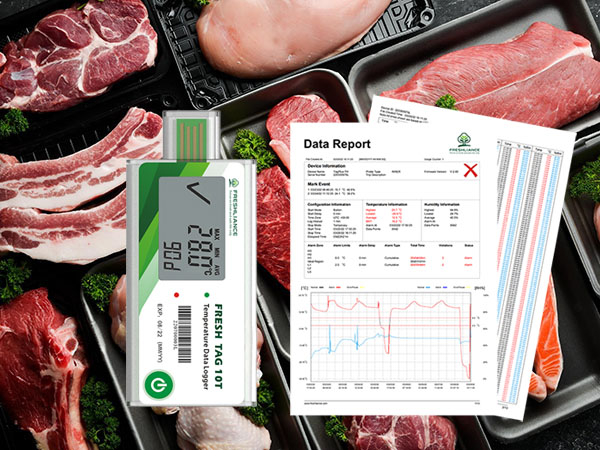
Freshliance FreshTag10T single-use USB temperature sensor is robust enough to withstand the rigors of the journey while being compact and lightweight to sit conveniently with shipments. This disposable temperature recorders for shipping is ideal for meat and poultry. All parameters including alarm points can be configured on our free configuration software. Once the temperature is out of the alarm range, the alarm symbol will be displayed on the screen and the red indicator will flash once every 10 seconds. On arrival at its destination, after stopping this usb temperature data logger, plug it into the computer, and the irreversible PDF&CSV report with graph and table will be generated automatically and quickly without any additional software. The mark and alarm will also show on this report. In meat and poultry, temperature monitoring is governed by specific regulations including HACCP (Hazard Analysis and Critical Control Point) controls, Food Hygiene Regulations, and European Union QFF (quick-frozen foodstuffs) Regulations, to ensure that food safety hazards are identified and controls are in place to eliminate or minimize risks to consumers. This report will be the necessary evidence for the regulatory compliance of the product.

 English
English Español
Español Русский
Русский Français
Français Deutsch
Deutsch عربي
عربي 中文
中文